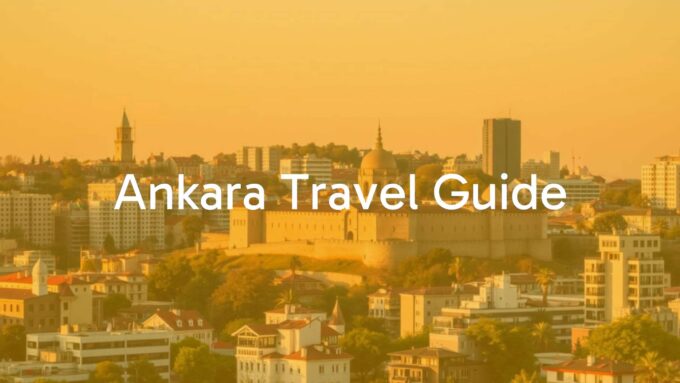Figuring out entry rules for any country can be confusing, and Turkey is no different. Do you need a visa for Turkey? The short answer: it depends on your nationality, the purpose of your trip, and how long you plan to stay. Many visitors can enter without a visa for short tourist or business trips. Others must get a visa in advance, either online through the eVisa system or at a Turkish embassy or consulate. Knowing these details helps you plan a smooth trip to this country.
Turkey’s visa rules aim to make travel easy while protecting borders and managing migration. These rules change from time to time, so every traveler should check the latest information before booking. This guide explains the key parts of Turkey’s visa policy so you can prepare with confidence.

Turkey visa requirements: what travelers need to know
Who needs a visa for Turkey?
There isn’t a single answer for everyone. In general, anyone who is not a citizen of Turkey or Northern Cyprus needs some kind of entry permission. This can be full visa exemption, an eVisa, or a sticker visa issued by a Turkish mission abroad.
For example, most U.S. passport holders do not need a visa for tourism or business for up to 90 days in any 180-day period. Citizens of some countries-such as Afghanistan, Algeria, Bangladesh, and others-do not have visa-free or eVisa options and must apply at a Turkish embassy or consulate before travel. The Turkish government sets these rules, which can vary based on agreements with other countries.
Visa exemption: countries and conditions
Turkey allows visa-free entry for many nationalities for short visits for tourism or business. Many EU and EFTA citizens can enter without a visa, and some may use a national ID card instead of a passport. Examples include:
- EU/EFTA: Germany, France, Italy, Spain, and more (some can enter with ID cards)
- United Kingdom: visa-free for up to 90 days in any 180-day period
- Other countries: Azerbaijan, Bahrain, Canada, Georgia, Israel, Japan, Kuwait, Moldova, Morocco, New Zealand, Oman, Qatar, Saudi Arabia, Singapore, South Korea, Ukraine, United Arab Emirates, United States
Some exemptions-such as those for Bahrain, Canada, Oman, Saudi Arabia, the United Arab Emirates, and the United States-began on December 23, 2023, and often apply to tourism only. Always check the exact length of stay and conditions for your passport.
Minimum passport validity requirements
Your passport must usually be valid for at least 60 days beyond the maximum time you are allowed to stay. For instance, if you can stay for 90 days, your passport should be valid for at least 150 days from the day you enter Turkey.
Your passport also needs at least one blank page for entry and exit stamps. Without enough blank pages, you may be refused entry. Some European citizens have special arrangements under the Council of Europe rules, such as entering with an ID card or a recently expired passport, but these are special cases and not the general rule.
Visa types available for Turkey
Turkey offers different visa types for different purposes, from short holidays to long-term work or study. Knowing the differences helps you apply for the right option. Each visa type has its own rules and allowed activities.
| Visa type | Main purpose | Where to apply | Typical stay | Key notes |
|---|---|---|---|---|
| Tourist/Business (short stay) | Tourism, meetings, events | eVisa or visa-free; some need embassy/consulate | Up to 90 days in 180 (varies) | No work allowed |
| Business (specific cases) | Negotiations, commercial visits | Embassy/consulate if required | Varies by nationality | Often needs invitation letter |
| Student | Study, exchange, internships | Embassy/consulate before arrival | For course/program length | Requires acceptance letter |
| Work | Employment and special roles | Embassy/consulate + work permit | Linked to work permit | Employer applies for permit in Turkey |
| Transit | Pass through Turkey | May be visa-free airside; some need transit visa | Short, under 24 hours airside | Rules vary by route and nationality |
| Special/Official | Medical, family, seafarers, official duty, etc. | Embassy/consulate | Varies | Specific documents needed |
Tourist visas
Tourist visas are the most common. Many nationalities can enter without a visa for up to 90 days in any 180-day period. Others can use the online eVisa, which is quick for short trips. eVisas often allow multiple entries and up to 90 days within 180, though some passports get a single entry for 30 days.
This category also covers short visits for business meetings, conferences, seminars, fairs, festivals, sports, and cultural or art events. A tourist visa (or visa-free entry) does not allow you to work or access public funds.
Business visas
Travelers going for commercial activities beyond basic meetings may need a business visa. Some nationalities can visit visa-free for short business trips (for example, U.S. citizens for up to 90 days in 180). Others must apply at a Turkish mission. Usual documents include an invitation letter from a Turkish company, proof of funds, and a schedule of business activities.
Student visas
Anyone planning to study in Turkey-full degree, exchange (ERASMUS, AIESEC), Turkish language course, or internship-must get a student visa from a Turkish embassy or consulate before arriving. You will need an acceptance letter, proof of financial support, and sometimes a statement of purpose. This visa allows longer stays for the length of your studies.
Work visas
People who plan to work in Turkey-employees, lecturers, academics, athletes, artists, journalists, or technicians for assembly/repair-must obtain a work visa. Apply at a Turkish mission after your employer starts the work permit process with the Ministry of Labor and Social Security. A valid work permit is required for the work visa, and you need both to work legally.
Transit visas
If you pass through Turkey on your way to another country, you may or may not need a transit visa. If you stay airside in the international transit area and your connection is under one day, a visa is usually not needed. If you must go landside and pass immigration, or if your nationality requires it, a transit visa is needed.
Be aware that airport transit visa rules were brought back on August 15, 2023, for travelers heading to the Turkish Republic of Northern Cyprus, and new rules began on April 15, 2024, for those going to Mexico, Panama, Colombia, or Venezuela. Citizens of certain countries (including Afghanistan, Bangladesh, China, India, and others) now need a double airport transit visa when passing through any Turkish airport on the way to Northern Cyprus. Similar rules apply for some travelers bound for those Latin American countries. Many of these transit visas can be requested online.
Special and official visas
Turkey also issues visas for special purposes: archaeological digs, documentary work, medical treatment, family reunification, freight transport, seafarers, and a digital nomad option. Official visas cover people on official duty or couriers. Holders of diplomatic or service passports, or UN laissez-passer, may have special exemptions based on agreements and the nature of the trip. For example, UN laissez-passer holders on official duty can be exempt for up to 90 days in any 180 days. These categories usually require direct application through a Turkish mission with specific documents.
Applying for a Turkey visa: step-by-step guide
The process depends on your nationality and visa type. Whether you apply for an eVisa or a sticker visa, a clear step-by-step approach helps you avoid delays.
What documents are required for a Turkey visa?
Requirements vary, but most applicants need the following:
- Valid passport (usually valid for at least six months beyond your arrival date; at least one blank page). Some passports have special rules, such as British passports needing 150 days remaining for a 90-day stay.
- Completed visa application form
- Recent biometric photos
- Proof of travel plans (flight bookings) and accommodation (hotel reservations or address)
- Proof of funds for your stay (often around 50 USD per day)
Extra documents depend on the visa type: acceptance letters for students, employment contracts and work permits for workers, and so on. For conditional eVisas, you may need a valid visa or residence permit from Schengen countries, Ireland, the UK, or the US, and travel on certain airlines (such as Pegasus Airlines or Turkish Airlines). Check the Turkish Ministry of Foreign Affairs website or contact a Turkish mission for the exact list for your case.
Applying online for a Turkish eVisa
Many nationalities can use the eVisa system. Go to the official Turkish eVisa website, fill in your details and trip dates, and double-check everything. Pay the fee by card. After approval, the eVisa arrives by email-print it and carry it with you. It links to your passport, and border officers can view it on arrival. eVisas are for short tourist or business visits and often allow multiple entries up to 90 days in 180, but rules vary by nationality.
Applying for a sticker visa at embassies or consulates
If you are not eligible for an eVisa or need a long-term or special visa (study, work, etc.), apply at a Turkish embassy or consulate where you live. Book an appointment, prepare your documents (passport, form, photos, travel and stay details, bank statements, supporting letters/permits), and attend in person if required. Your passport may be kept during processing, and the visa will be placed inside once approved. Start early, as processing can take time.

Visa processing times and fees
Processing time and fees depend on your nationality and visa type. eVisas are usually fast-often minutes to a few hours-but apply a few days before travel in case of issues. Fees are paid online and vary by passport. Some eVisas (for certain conditional cases or nationalities like Mexico and Taiwan) may be free.
Sticker visas take longer-anywhere from a few days to several weeks, and sometimes months for work or long-term stays. Check with the Turkish mission handling your case for current fees and timeframes. Fees are generally paid when you apply and are non-refundable.
Entry and exit rules for Turkey
Before you start your trip, learn the entry and exit steps to avoid problems at the border. This will help your stay go smoothly.
On arrival, make sure your passport gets an entry stamp. You will need this for things like domestic flights. When you leave, get an exit stamp as well. Missing stamps can cause trouble later, including fines or issues re-entering Turkey. Follow the directions of immigration officers at the airport or border.
Staying in Turkey beyond your visa: risks and penalties
Overstaying your visa or residence permit can lead to fines, deportation, and bans on future entry. Penalties often depend on how long you overstay.
U.S. citizens who want to stay longer than 90 days must apply for a residence permit after arriving in Turkey. The Presidency of Migration Management (PMM) issues these permits. Start the process before your current allowed stay ends. Keeping your status valid is your responsibility, and the U.S. Embassy cannot help with Turkish immigration cases. Plan ahead and follow the rules to avoid legal problems.
Common questions about Turkey visa requirements
Travelers often ask about visas on arrival, extending stays, and using visas from other regions. Here are clear answers to the most common questions.
Is a visa on arrival available in Turkey?
Turkey has mostly replaced the visa on arrival with the eVisa. Many travelers must apply online before they fly. The eVisa serves the same purpose but saves time at the airport. Check the Turkish Ministry of Foreign Affairs website to see if you qualify and apply in advance.
There is an exception for cruise ship passengers. They may enter without a visa using a visitor permit issued at the port. This is usually valid for the port city (and sometimes nearby areas) for up to 72 hours.
How to extend your stay in Turkey?
To stay longer than your visa-free period or tourist visa allows, apply for a residence permit. For example, U.S. citizens who plan to stay more than 90 days must apply after arrival.
Submit your application and supporting documents to the local Directorate of Migration Management. Start before your current permission ends. Even a one-day overstay can lead to fines or entry bans. If you think you will need more time, contact the PMM early.
Can you travel to Turkey with a Schengen or US visa?
Turkey has its own visa policy. Still, for some nationalities that qualify for a conditional eVisa, having a valid visa or residence permit from Schengen countries, Ireland, the UK, or the US can be one of the required conditions for approval.
Please remember: a Schengen or US visa does not replace a Turkish visa if your nationality needs one. It may only help you meet the conditions for a Turkish eVisa. Electronic visas or electronic residence permits from those regions usually do not count for this requirement. Check the Turkish Ministry of Foreign Affairs website for the exact rules for your passport.














Leave a comment